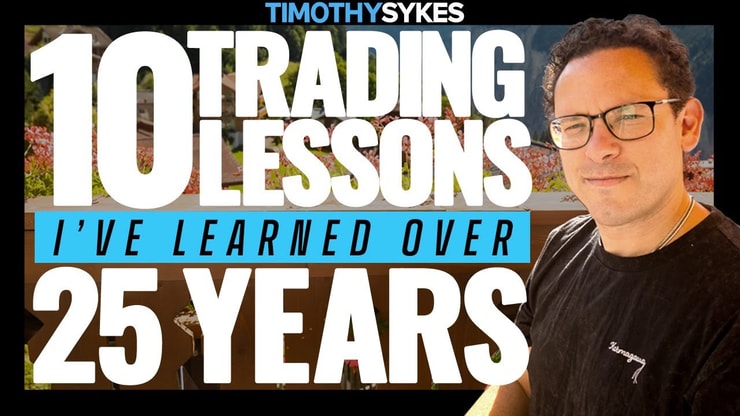Understanding stock market holidays is crucial for traders and investors. These are the days when the Canadian stock markets, like the Toronto Stock Exchange (TSX), close their doors, impacting trading activities. Knowing these dates is essential for planning trades, managing portfolios, and understanding the financial calendar.
You should read this article because it offers a comprehensive guide to understanding and navigating stock market holidays in Canada, crucial for effective trading and investment management.
I’ll answer the following questions:
- What are stock market holidays?
- How do market closures impact investors and traders?
- What are the regular and partial trading schedules of the Toronto Stock Exchange (TSX)?
- How do TSX market holidays compare with other major global exchanges?
- Why do investors choose TSX stocks?
- What are the common consequences of market closures, like settlement delays?
- How can traders develop strategies around market holidays?
- What are the key dates for other notable Canadian securities exchanges, like the Canadian Securities Exchange (CSE) and the Montréal Exchange?
Let’s get to the content!
Table of Contents
- 1 What Are Stock Market Holidays?
- 2 TSX Trading Hours and Market Holidays
- 3 Overview of the Toronto Stock Exchange (TSX)
- 4 The Impact of Market Holidays on Financial Activities
- 5 Other Notable Canadian Securities Exchanges and Their Holidays
- 6 Preparing for Market Holidays: Tips for Investors and Traders
- 7 Key Takeaways
- 8 Frequently Asked Questions
- 8.1 How Do Canadian Stock Market Holidays Compare to U.S. Market Holidays?
- 8.2 Are There Any Special Trading Hours on Days Preceding Market Holidays?
- 8.3 How Do Market Holidays Affect Stock Settlement Dates?
- 8.4 What Are Key Stock Market Holidays in Canada Affecting Forex Trading?
- 8.5 How Do Canadian Stock Market Holidays Impact Index and Options Trading?
- 8.6 Where Can I Find Information on Stock Market Holidays and Forex Impacts?
- 8.7 How Do Investors Access Accounts During Canadian Stock Market Holidays?
- 8.8 Are There Any Additional Fees or Money Considerations During Holidays?
- 8.9 Can I Explore Careers in Forex Trading During Stock Market Holidays?
What Are Stock Market Holidays?
Stock market holidays are specific days when stock exchanges halt trading. These holidays often align with national holidays and are essential for investors and traders to know. During these times, no trading activities occur, which means no buying or selling of stocks, bonds, ETFs, or mutual funds. It’s a pause in the otherwise non-stop world of finance.
The Role of Market Holidays in the Financial Calendar
Market holidays play a significant role in the financial calendar. They provide a predictable schedule for when markets will be closed, allowing investors and traders to plan their activities accordingly. These holidays are essential for maintaining a balanced work-life rhythm in the high-stress world of stock trading.
How Market Closures Impact Investors and Traders
Market closures can significantly impact investors and traders. They affect the liquidity and volatility of stocks around the holiday period. Traders need to be aware of these closures as they plan their trading strategies, especially when it comes to short-term trades or timing the market.
TSX Trading Hours and Market Holidays
The Toronto Stock Exchange (TSX), a primary stock exchange in Canada, has specific trading hours and market holidays that traders should be aware of. These schedules dictate when trading activities can take place and are crucial for anyone involved in the Canadian stock market.
For a deeper dive into the intricacies of the stock market open in Canada, including its impact on trading strategies and market behavior, check out this detailed exploration: Understanding the Stock Market Open in Canada.
More Breaking News
- Can Nu Holdings Sustain its Recent Stock Surge or will it face a Setback?
- BTCS Stock Sees Remarkable Volatility: What’s Driving the Change?
- Will Intuitive Machines Soar After Its Upcoming Q3 Financial Release?
Regular Trading Schedule
The TSX operates on a regular trading schedule, typically from Monday to Friday, with specific opening and closing times. This schedule is crucial for traders to know, as it dictates the window of opportunity for trading activities.
Partial Trading Schedule
On certain days, the TSX operates on a partial trading schedule. These are days when the market opens for a limited number of hours. Traders need to be aware of these days as they offer a shorter time frame for trading activities.
Special Trading Hours and Adjustments
Occasionally, the TSX may have special trading hours or adjustments. These are typically announced in advance and can be due to various reasons, such as national events or technical issues. Staying informed about these changes is crucial for effective trading.
Overview of the Toronto Stock Exchange (TSX)
The Toronto Stock Exchange (TSX) is a key player in the global financial landscape. As one of the largest stock exchanges in the world, it plays a vital role in the Canadian and international financial markets.
A Brief History of the TSX
The TSX has a rich history, dating back to its founding. Over the years, it has grown to become a significant hub for trading stocks, bonds, ETFs, and other securities, not just in Canada but globally.
The Importance of the TSX in the Global Financial Landscape
The TSX’s importance in the global financial landscape cannot be overstated. It is a barometer for the Canadian economy and a gateway for international investors looking to tap into Canadian markets.
Comprehensive List of TSX Market Holidays
A comprehensive list of TSX market holidays includes New Year’s Day, Victoria Day, Canada Day, Labour Day, and Boxing Day, among others. These are days when the TSX closes, and no trading occurs.
Holiday Observations: Christmas, Boxing Day, and More
Holiday observations like Christmas and Boxing Day are particularly important in the stock market calendar. These holidays can impact trading activities in the days leading up to and following the holiday.
Comparing TSX Holidays with Other Major Global Exchanges
Comparing TSX holidays with other major global exchanges, like the NYSE or Nasdaq, reveals similarities and differences in market closures. This comparison is crucial for traders who operate in multiple markets.
Why Investors Choose TSX Stocks
Investors choose TSX stocks for various reasons, including the diversity of industries represented, the stability of the Canadian economy, and the exchange’s robust regulatory framework. The TSX offers a range of investment opportunities, from commodities and energy to technology and finance.
The Impact of Market Holidays on Financial Activities
Market holidays have a tangible impact on financial activities. They can affect everything from stock prices to investor behavior, making an understanding of these holidays crucial for successful trading.
Settlement Delays Due to Market Closures
Settlement delays are a common consequence of market closures. When the market is closed, trades made just before the holiday might take longer to settle, affecting cash flow and trading strategies.
Settlements are only one piece of the puzzle. For traders looking to expand their knowledge beyond just understanding market holidays, exploring stock market courses in Canada can be a transformative step. These courses offer insights into trading strategies, market analysis, and risk management, tailored to the Canadian market context. For insights on selecting the best stock market courses in Canada, including what to look for and how to choose a course that aligns with your trading style, check out: Stock Market Courses in Canada: Best Courses & How to Choose.
Trading Strategies Around Holidays
Developing trading strategies around holidays is a skill. Traders often observe patterns in market behavior before and after holidays, which can be leveraged for strategic trading decisions.
The Economic Significance of Market Holidays
Market holidays have economic significance. They can affect the liquidity and volatility of the market, influence investor sentiment, and impact the overall trading environment.
Other Notable Canadian Securities Exchanges and Their Holidays
Besides the TSX, Canada is home to other significant securities exchanges, each with its own holiday schedule. These include the Canadian Securities Exchange (CSE) and the Montréal Exchange.
Canadian Securities Exchange (CSE) Holiday Schedule
The CSE, another major stock exchange in Canada, has its own set of market holidays. Traders involved in this exchange need to be aware of these dates for effective trading.
Montréal Exchange: Key Dates to Remember
The Montréal Exchange, specializing in derivatives and futures, also observes specific market holidays. These dates are crucial for traders dealing in these financial instruments.
Nasdaq Canada: Market Closures and Special Days
Nasdaq Canada, part of the global Nasdaq network, follows its holiday schedule. Understanding these dates is essential for traders who engage in cross-border trading activities.
Preparing for Market Holidays: Tips for Investors and Traders
Preparing for market holidays is a vital aspect of trading. It involves understanding the market’s schedule and adjusting trading strategies accordingly.
The Benefits of Planning Ahead
Planning ahead for market holidays can offer numerous benefits. It allows traders to avoid surprises, manage their portfolios effectively, and capitalize on market opportunities.
Using the right tools is crucial. One such tool is the Yahoo Finance portfolio. This platform offers a comprehensive view of your investments, real-time market data, and news updates. Utilizing such tools can significantly enhance your trading efficiency and effectiveness. To understand how to maximize the benefits of Yahoo Finance Portfolio in Canada, visit: Yahoo Finance Portfolio in Canada: Things to Know.
Avoiding Common Mistakes Around Market Closures
Avoiding common mistakes around market closures is crucial. This includes understanding the impact of holidays on market liquidity and volatility and adjusting trading strategies accordingly.
Leveraging Market Holidays for Investment Strategies
Leveraging market holidays for investment strategies can be a smart move. This involves understanding market trends around holidays and using this knowledge to make informed trading decisions.
Key Takeaways
In Canada, there’s a great importance in understanding local stock market holidays, their impact on trading activities, and how to prepare for them. Being aware of these dates is crucial for effective trading and investment management.
Trading isn’t rocket science. It’s a skill you build and work on like any other. Trading has changed my life, and I think this way of life should be open to more people…
I’ve built my Trading Challenge to pass on the things I had to learn for myself. It’s the kind of community that I wish I had when I was starting out.
We don’t accept everyone. If you’re up for the challenge — I want to hear from you.
Apply to the Trading Challenge here.
Trading is a battlefield. The more knowledge you have, the better prepared you’ll be.
How do you spend your market holidays? Let me know in the comments — I love hearing from my readers!
Frequently Asked Questions
How Do Canadian Stock Market Holidays Compare to U.S. Market Holidays?
Canadian stock market holidays have some similarities and differences compared to U.S. market holidays. While some holidays like Christmas are observed in both countries, others like Canada Day and Victoria Day are unique to Canada.
Are There Any Special Trading Hours on Days Preceding Market Holidays?
Yes, there are often special trading hours on days preceding market holidays. These can include early closures, which traders need to be aware of when planning their activities.
How Do Market Holidays Affect Stock Settlement Dates?
Market holidays can affect stock settlement dates by delaying the settlement process. Trades made just before a holiday might take longer to settle, impacting cash flow and trading strategies.
What Are Key Stock Market Holidays in Canada Affecting Forex Trading?
In Canada, stock market holidays like Independence Day, Memorial Day, and Civic Holiday impact forex trading due to market closure. Since forex involves currency trading, these holidays can lead to a pause in trading activities, affecting both companies and individual traders.
How Do Canadian Stock Market Holidays Impact Index and Options Trading?
During Canadian stock market holidays, trading activities for options and indexes are halted. This means that investors and companies involved in trading these financial instruments will experience a temporary cessation of activities on Wall Street and other connected markets.
Where Can I Find Information on Stock Market Holidays and Forex Impacts?
For detailed information on how Canadian stock market holidays affect forex and other trading activities, you can consult financial articles, links, and social media updates. Many financial platforms and news websites provide this information, often available in various formats including YouTube videos and PDF documents.
How Do Investors Access Accounts During Canadian Stock Market Holidays?
Even during stock market holidays in Canada, investors generally retain access to their accounts. However, the ability to execute new trades in products like options, indexes, and currencies might be limited. Online platforms usually provide help and support through their team, even on holidays.
Are There Any Additional Fees or Money Considerations During Holidays?
While the Canadian stock market is closed during holidays, there are generally no additional fees charged on accounts. However, investors should be aware of the non-trading days as they might impact money settlement periods for investing or trades executed just before the holidays.
Can I Explore Careers in Forex Trading During Stock Market Holidays?
Yes, stock market holidays can be a good time to explore careers in forex trading. Company websites often list career opportunities, and during market downtimes, potential candidates can research and plan their next career move in the trading industry.




Leave a reply